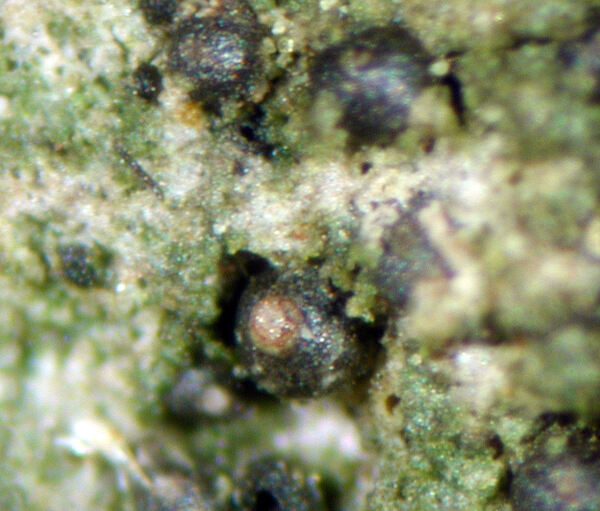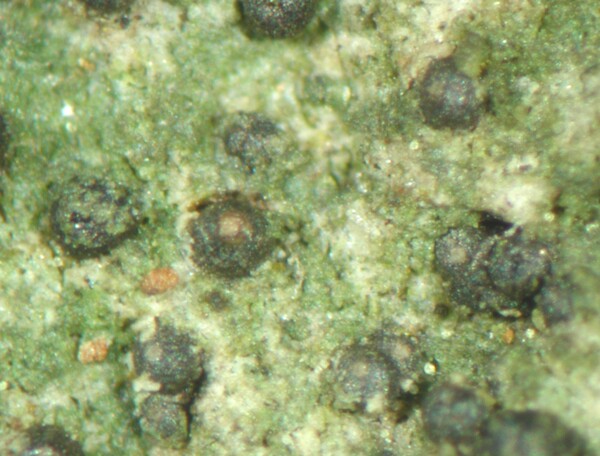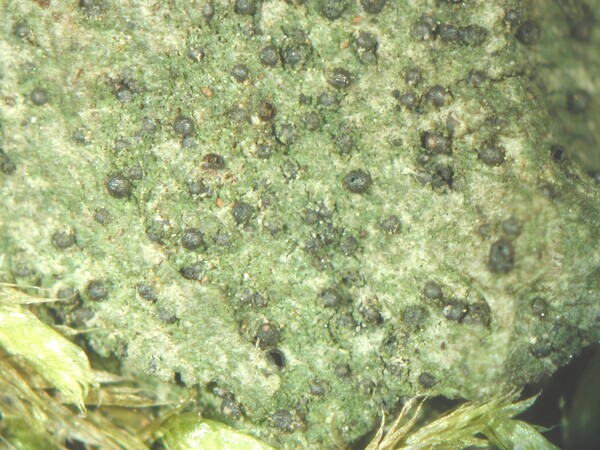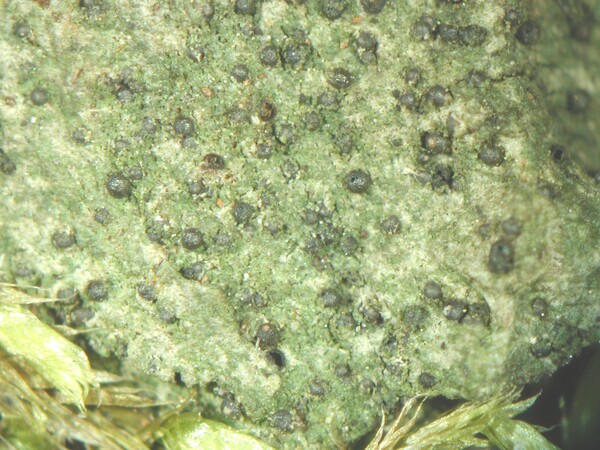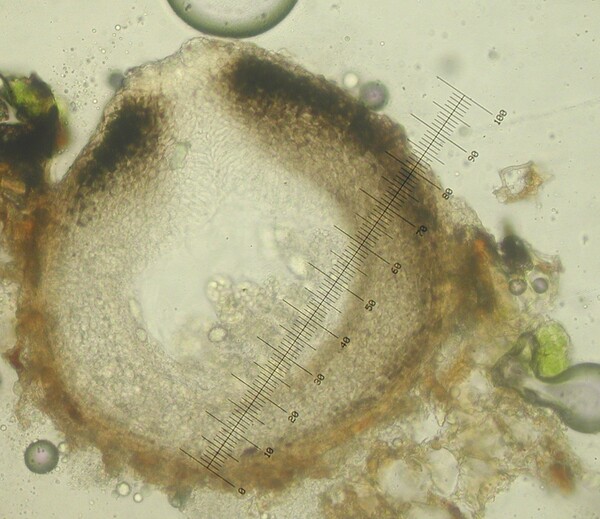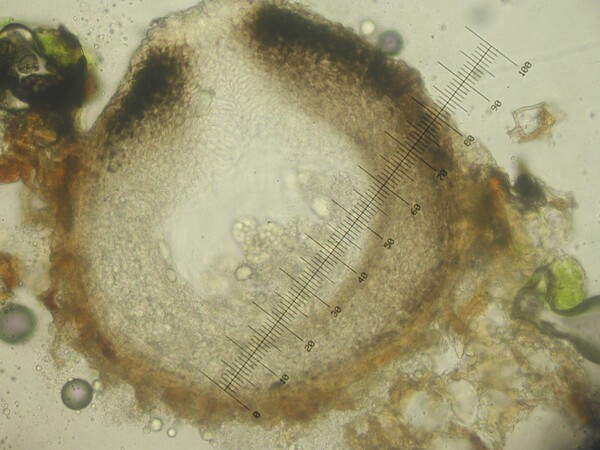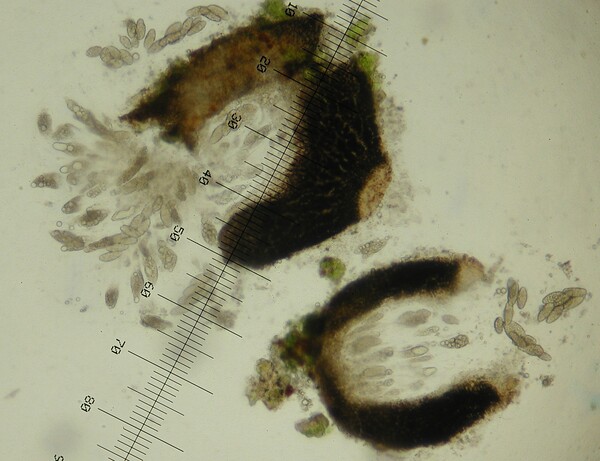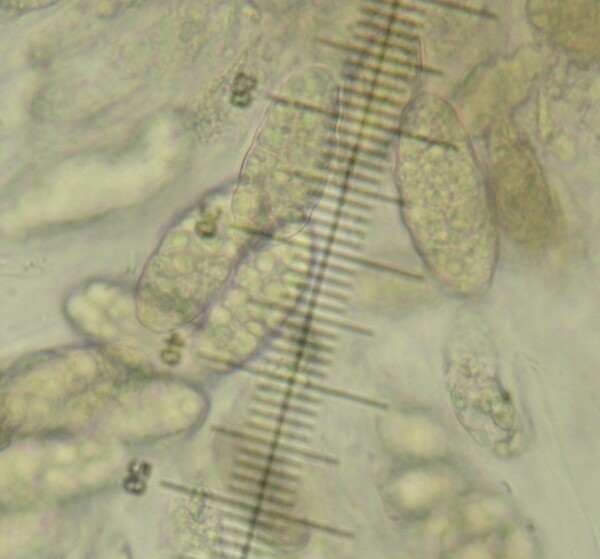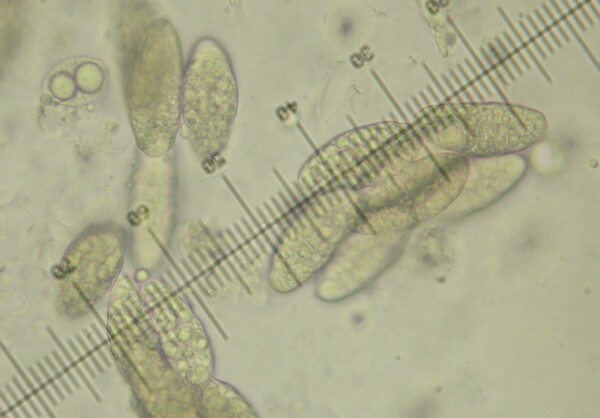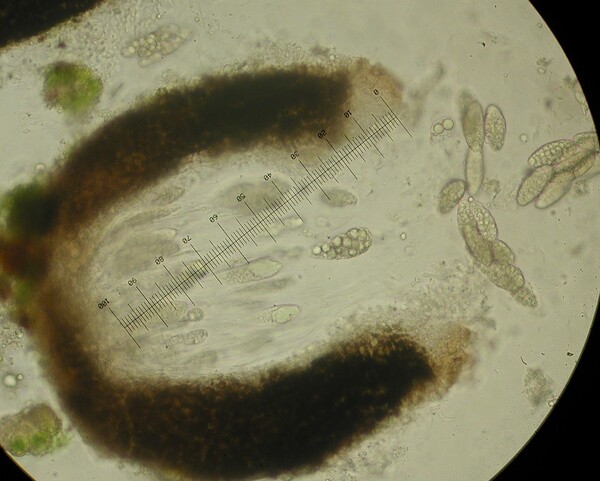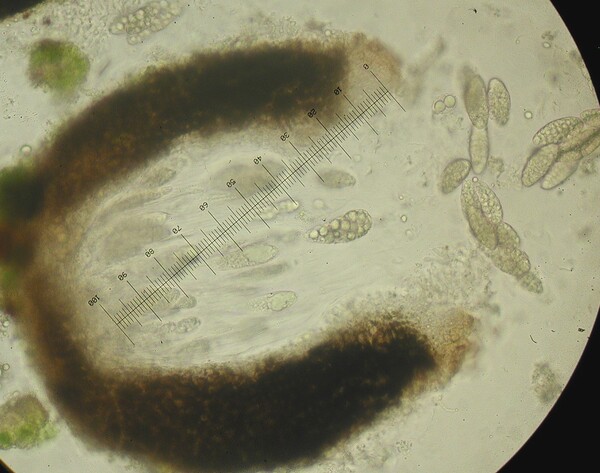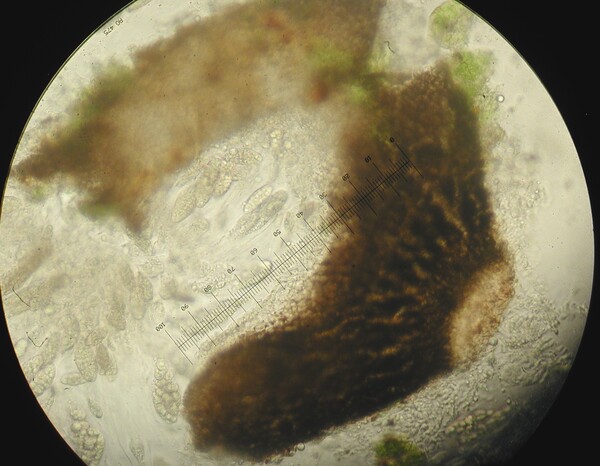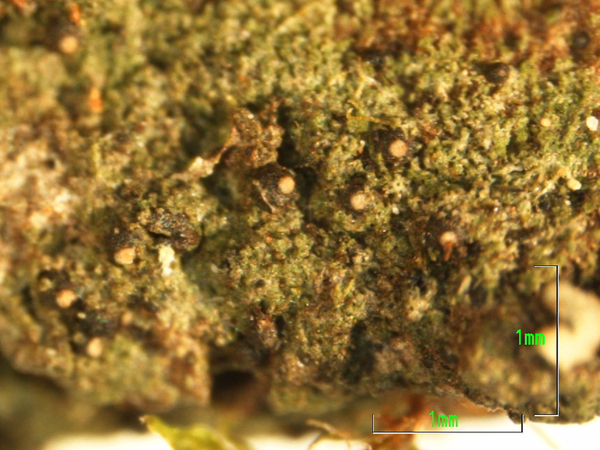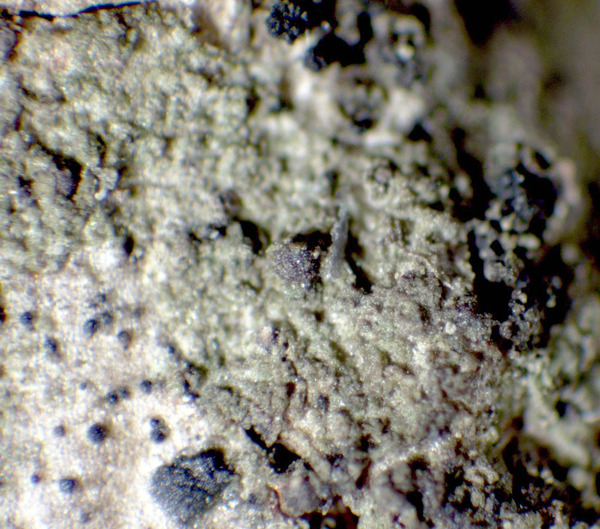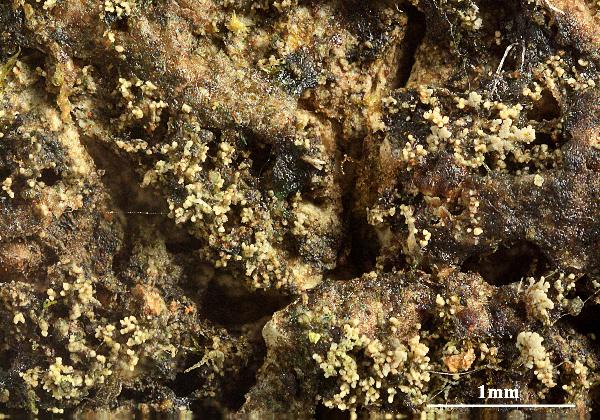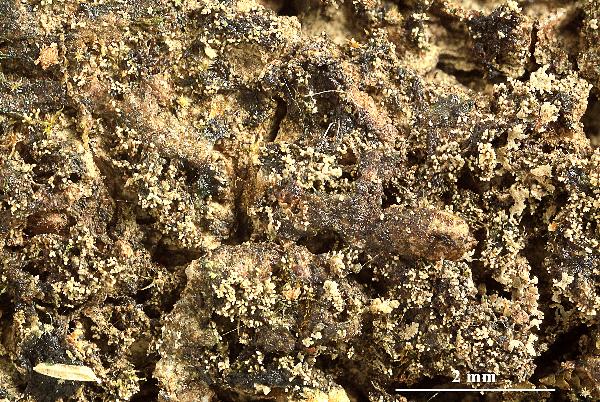Agonimia allobata (Stizenb.) P. James
in Coppins & al., Lichenologist, 24: 366, 1992. Basionym: Verrucaria allobata Stizenb. - Ber. naturw. Ges. St. Gallen: 501, 1882 (1880-1881).
Synonyms: Amphoroblastia allobata (Stizenb.) Servít; Polyblastia allobata (Stizenb.) Zschacke
Distribution: N - VG (Tretiach & Carvalho 1993, Carvalho 1997), Ven (Nascimbene 2008, Nascimbene & al. 2008e, 2012, 2015, Muggia & al. 2009, 2010, Nascimbene & Marini 2010), Emil (Nimis & al. 1996, Fariselli & al. 2020). S - Camp (Ravera & Brunialti 2013).
Description: Thallus crustose, episubstratic, grey-green to brown, slightly uneven and faintly roughened, composed of goniocysts surrounded by hyphae with a sparingly papillate wall. Perithecia 0.1-0.25 mm across (in section), more or less globose, sometimes slightly barrel-shaped, 2/3 immersed to almost entirely superficial, grey-brown when young, later usually black, but paler around the ostiole, the surface smooth, matt. Exciple 2-layered, pigmented in outer part, colourless and of compressed cells within; involucrellum absent; hamathecium of periphysoids which soon dissolve into a poorly differentiated hymenial gel (interascal filaments in mature ascomata lacking). Asci 8-spored, clavate, thin-walled, fissitunicate with a very thin exoascus, surrounded by a hemiamyloid gel. Ascospores muriform, hyaline, ellipsoid, (25-)29-35(-45) x 10-15(-17) μm. Photobiont chlorococcoid. Spot tests: K-, C-, KC-, P-, UV-. Chemistry: without lichen substances. Note: a mild-temperate species with subtropical affinities found on ancient deciduous trees, in crevices or amongst mosses, often at the base of trunks, in undisturbed forests or in deep gorges of the submediterranean belt; to be looked for further in Tyrrhenian Italy. It is included in the Italian red list of epiphytic lichens as “Vulnerable” (Nascimbene & al. 2013c).
Growth form: Crustose
Substrata: bark
Photobiont: green algae other than Trentepohlia
Reproductive strategy: mainly sexual
Most common in areas with a humid-warm climate (e.g. most of Tyrrenian Italy)
Commonnes-rarity: (info)
Alpine belt: absent
Subalpine belt: absent
Oromediterranean belt: absent
Montane belt: absent
Submediterranean belt: very rare
Padanian area: absent
Humid submediterranean belt: very rare
Humid mediterranean belt: absent
Dry mediterranean belt: absent

Predictive model
Herbarium samples
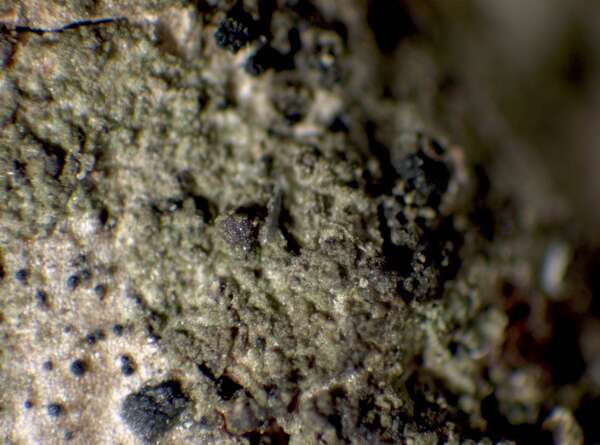

P.L. Nimis; Owner: Department of Life Sciences, University of Trieste
Herbarium: TSB (17804)
2001/11/28
Growth form: Crustose
Substrata: bark
Photobiont: green algae other than Trentepohlia
Reproductive strategy: mainly sexual
Most common in areas with a humid-warm climate (e.g. most of Tyrrenian Italy)
Commonnes-rarity: (info)
Alpine belt: absent
Subalpine belt: absent
Oromediterranean belt: absent
Montane belt: absent
Submediterranean belt: very rare
Padanian area: absent
Humid submediterranean belt: very rare
Humid mediterranean belt: absent
Dry mediterranean belt: absent

Predictive model
| Herbarium samples |


 INDEX FUNGORUM
INDEX FUNGORUM
 GBIF
GBIF
 DOLICHENS
DOLICHENS
